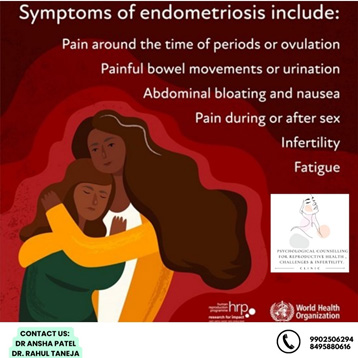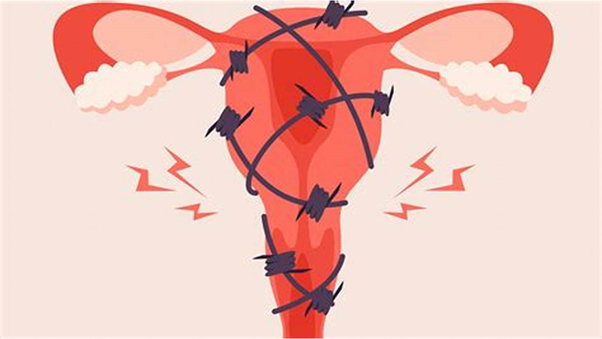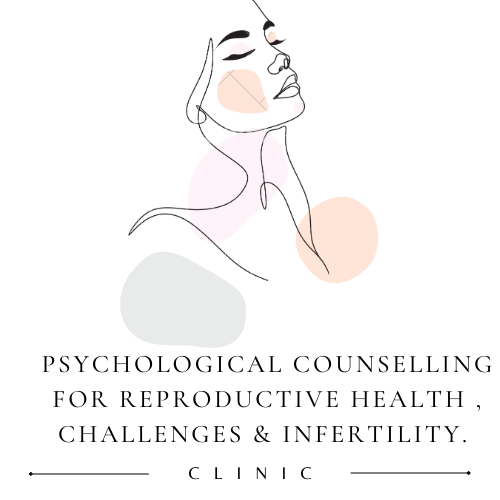
Coping with Endometriosis
Living with endometriosis can be a challenging journey that not only affects physical health but also takes a toll on mental wellbeing. Understanding the causes and symptoms of this condition is crucial in managing its impact on daily life.
At PCRH , our multi-specialized team is well equipped to explore the intersection between endometriosis and mental health. Our specialists handle the condition well and are keen on discussing coping strategies, seeking support through therapy, incorporating mind-body techniques, navigating relationships, practicing self-care, and advocating for oneself when communicating with healthcare providers.
By shedding light on these important aspects, we aim to provide guidance and support for those coping with endometriosis and its effects on mental health.
1. Understanding Endometriosis
Endometriosis is a condition that occurs when tissue similar to the lining of the uterus grows outside of it, causing pain and other unpleasant symptoms.
Common Symptoms of Endometriosis
Symptoms of endometriosis can vary from person to person, but they often include intense cramps that make you feel like your uterus is staging a revolt, heavy periods that could rival a crime scene, and pain during or after sex that makes you wonder if pleasure is just a myth.

2.Impact of Endometriosis on Mental Health

Living with endometriosis can be emotionally overwhelming. Chronic pain, fatigue, and other symptoms can lead to feelings of frustration, anger, and sadness. The uncertainty surrounding diagnosis and treatment (medical or surgical)can also contribute to anxiety and stress.
Moreover, the impact of endometriosis on relationships, work, and social life can further exacerbate these emotional challenges.
If you or someone you know is struggling with endometriosis-related emotional distress, consider seeking support from a therapist or joining a support group. Remember that you’re not alone, and there are resources available with us at PCRH to help you cope with these challenges.

3. Relationship Between Chronic Pain and Mental Health in endometriosis
Endometriosis is a common, often painful condition in which tissue similar to the uterine lining grows outside the uterus. Here’s how it impacts mental health via the pain and distress:- Chronic Pelvic Pain: The most common symptom of endometriosis is chronic pelvic pain, especially just before and during the menstrual period. Living with significant pain can increase the risk of mental health problems, including depression and anxiety.
- Delayed Diagnosis: Unfortunately, many women face delays of four to six years before receiving an endometriosis diagnosis. Challenges include stigma, embarrassment, and uncertainty about symptoms. Women’s significant chronic pain is often not taken seriously or dismissed as ‘typical menstrual pain’ by healthcare professionals.
- Psychological Stress: A recent meta-analysis have found that more than two-thirds of women with endometriosis experience mild or high psychological stress. Interdisciplinary treatment should address not only pain management and potential infertility but also mental health support.
- Positive Impact of Acknowledgment: When healthcare providers acknowledge patients’ psychological stress, it positively affects their treatment. Being accepted and understood likely has a beneficial impact on mental health.
4. Comprehensive interprofessional management of Endometriosis at PCRH:
Living with endometriosis can be challenging, as it is a chronic condition that can cause significant pain and impact fertility. Here are some key points that we consider for managing endometriosis:- Understanding the Physical Condition: Endometriosis is characterized by the growth of endometrial-like tissue outside the uterus, which can lead to pain, heavy periods, and difficulties getting pregnant. It's essential to work closely with healthcare providers to manage symptoms and improve quality of life.
- Discussing The Treatment Options: Treatment plans often focus on pain management and improving fertility issues. This may include medications like pain relievers and hormone therapies, as well as surgical options. It's crucial to maintain regular appointments with a healthcare provider to manage the condition effectively.
- Check and Help for the Emotional and Social Impact: Endometriosis can affect emotional wellbeing and relationships. Support groups and open communication with loved ones can provide emotional support and understanding.
- Check and help with Lifestyle Enrichment & Management: A healthy lifestyle, including regular exercise, quality sleep, and a balanced diet, can help manage symptoms and improve overall well-being.
- Family Counselling , Community Advocacy and Awareness: Raising awareness about endometriosis is crucial for better diagnosis and treatment. Support groups and advocacy can help individuals navigate the challenges of living with the condition.
- Advocating for Yourself & Communicating with Healthcare Providers: Navigating the healthcare system with endometriosis often requires assertiveness and clarity in communication. From documenting symptoms to asking questions and expressing concerns, effective communication with healthcare providers is essential for receiving comprehensive care. Advocating for oneself ensures that individual needs are heard and addressed.
- Seeking Second Opinions and Exploring Treatment Options: Endometriosis is a complex condition with varying treatment approaches. Seeking second opinions and exploring different treatment options can empower individuals to make informed decisions about their health. Collaborating with healthcare providers to tailor a treatment plan that aligns with personal goals and preferences is key to managing endometriosis effectively.
The Psychosocial management at PCRH involves :

- Collaborative informational counselling on Endometriosis.
- Mind-Body Techniques for Managing Pain, Sadness and Anxiety
- Coping Strategies for Managing Endometriosis Symptoms
- Pain Management Techniques
- Diet, Nutrition and Lifestyle Changes /Enrichment for Symptom Relief
- Seeking Support: Therapy and Counselling Options
- Navigating Relationships and Intimacy with Endometriosis
- Self-Compassion and Acceptance skills
Benefits of seeking Psychotherapy for Endometriosis Patients
Therapy isn't reserved for crises or major life events—it can be a lifeline for navigating the emotional rollercoaster that comes with endometriosis. Talking to a therapist can help you process your feelings, develop coping strategies, and feel less alone in your struggles.
Types of Therapy for Managing Mental Health in endometriosis
When it comes to coping with endometriosis, understanding the mind-body connection can be a game-changer. This connection emphasizes how our emotions and thoughts can impact our physical well-being, including pain levels and anxiety. By harnessing this relationship, individuals can explore holistic ways to manage their symptoms.
- Cognitive behaviour therapy: From cognitive-behavioral therapy (CBT) that helps you reframe negative thoughts to more realistic and helpful ones. There are various therapy options that can support you and your partner in your mental health journey. Finding a therapist who understands the unique challenges of endometriosis can make all the difference in feeling heard and supported.
- Mindfulness based therapies: Practicing mindfulness and relaxation techniques can be powerful tools in managing the challenges of endometriosis. Simple activities like deep breathing exercises, meditation, and progressive muscle relaxation can help reduce pain perception, alleviate stress, and promote a sense of calm. These accessible techniques empower individuals to take an active role in their well-being.
- Couple Counselling: Endometriosis can impact not only the individual but also their relationships. Effective communication with loved ones is key to building understanding and support. Sharing feelings openly, setting boundaries, and educating partners and family members about the condition can foster empathy and connection during challenging times.
- Navigating intimacy with endometriosis requires creativity and sensitivity. From exploring alternative forms of intimacy to prioritizing open dialogue about needs and limitations, couples can strengthen their bond while navigating the impact of the condition on their sex life. Understanding and patience are essential ingredients in maintaining a fulfilling relationship.
- Compassion focused therapies: Compassion-focused therapy (CFT) is a therapeutic approach that aims to enhance compassion for oneself and others. In the whirlwind of managing endometriosis, self-care often takes a back seat. Women and their families may become critical, upset, complaining towards themselves and their bodies. However, prioritizing self-care practices, whether through gentle exercise, creative outlets, or moments of relaxation, is vital for mental well-being. Integrating self-care into daily routines can provide moments of respite and rejuvenation amidst the challenges posed by the condition.
- Endometriosis can bring about feelings of frustration and self-criticism. Practicing self-compassion and acceptance is crucial in cultivating a positive mindset. Embracing one's journey, celebrating small victories, and treating oneself with kindness can foster resilience and inner strength in the face of adversity.
PCRH : Management of Endometriosis

In conclusion, managing endometriosis and prioritizing mental health requires a holistic approach that encompasses physical, emotional, and psychological well-being. By implementing the coping strategies and support systems discussed above, individuals can navigate the challenges of living with endometriosis more effectively.
There is no known cure for endometriosis, yet it can be well managed. There are treatments which can help relieve your symptoms and improve your quality of life.
The trick is to find the right solution for you! This means talking with your doctor about your symptoms, how they affect your daily life, and discussing whether you want to have children now or in the future. Remember, seeking help, practicing self-care, and advocating for your needs are essential steps in fostering resilience and improving overall quality of life while living with this chronic condition. Our team at PCRH can enable you to : Stay empowered, stay informed, stay well and remember that you are not alone in this journey.
Our Client feedbacks
Excellent therapy , prompt help. Feeling much positive. Doctor maam is amazing human by nature.
Excellent hospital. Good knowledgeable doctor. Has understanding of complex psychological issues. Thanks dr Ansha.
The whole experience was so useful. I thoroughly enjoyed it by useful information.
Wonderful session .I thoroughly enjoyed ❤️Thank you so much for this session.
Dr Ansha helped spouse n family. Her treatment highly effective. Much less worried now.
Best counseling for fertility issues. Best Dr is dr ansha.
